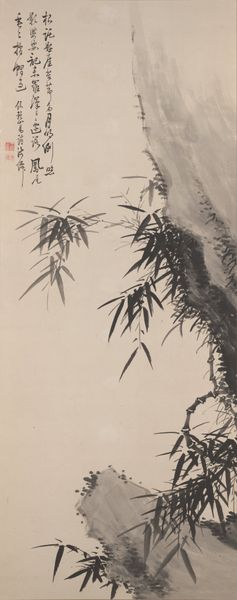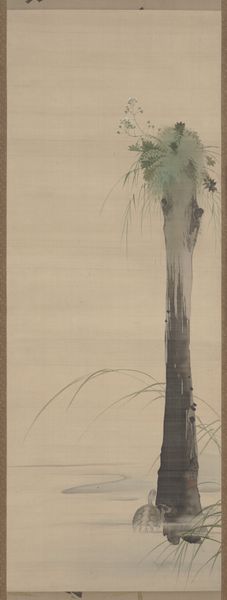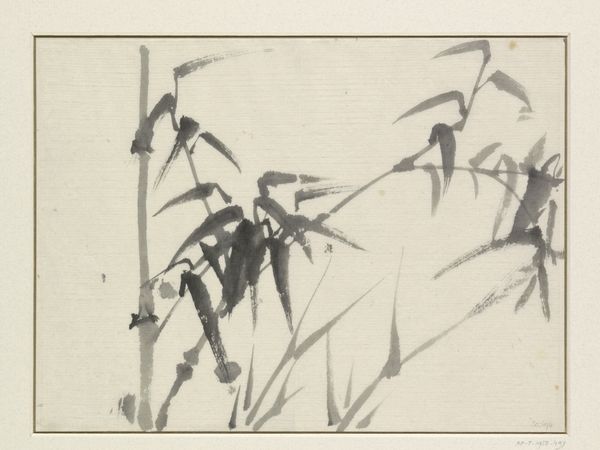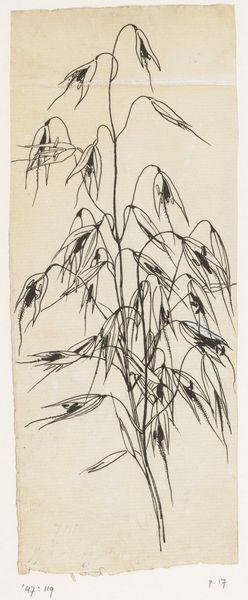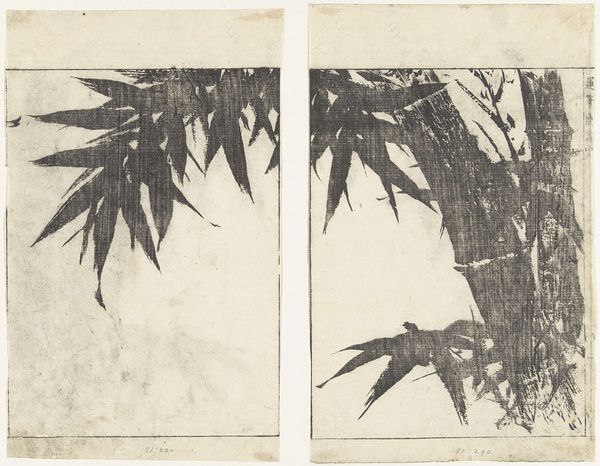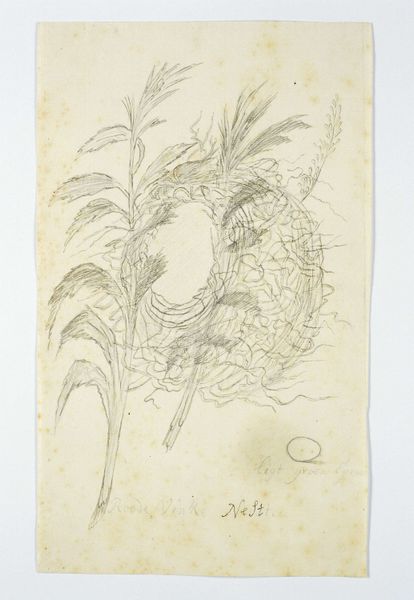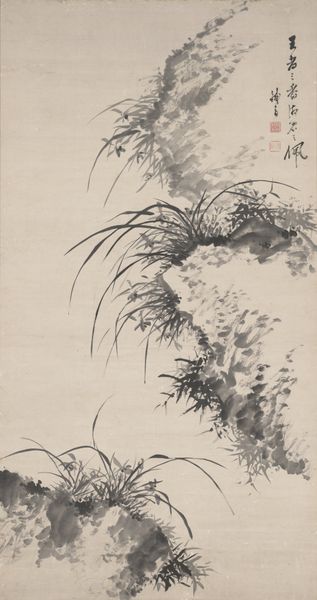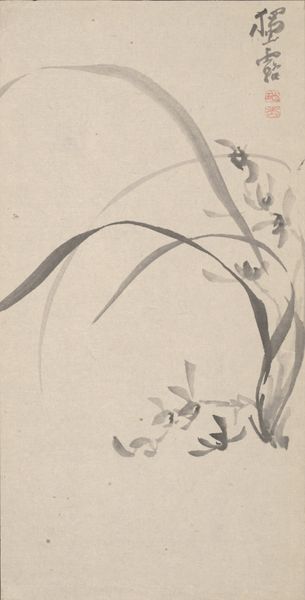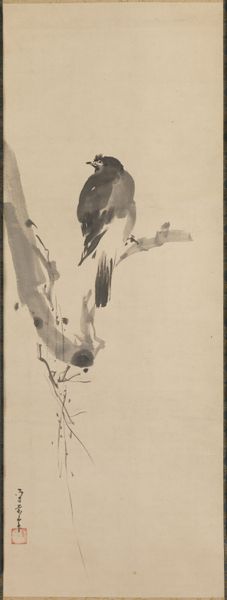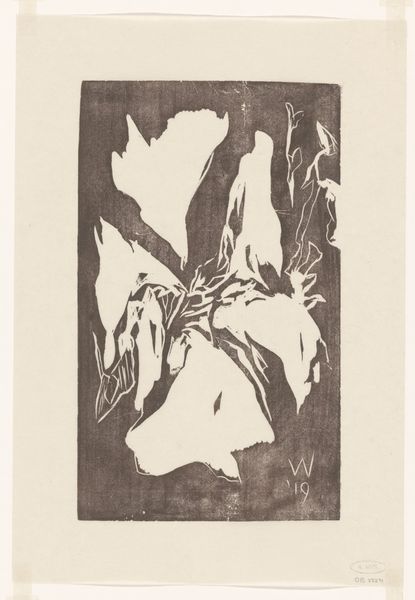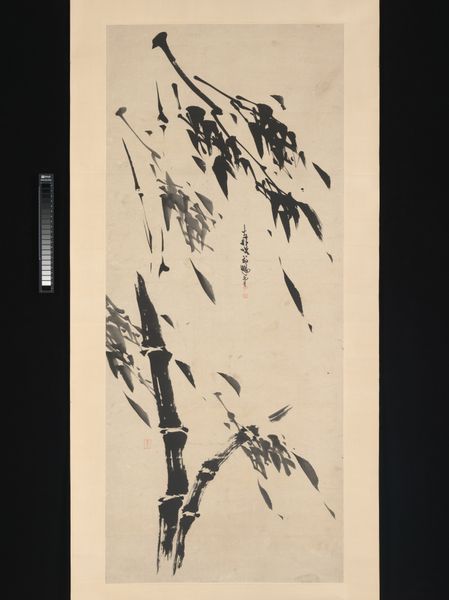
drawing, paper, ink-on-paper, hanging-scroll, ink
#
drawing
#
ink drawing
#
asian-art
#
landscape
#
paper
#
ink-on-paper
#
hanging-scroll
#
ink
#
pencil drawing
#
ink drawing experimentation
#
orientalism
#
line
Copyright: Public Domain
This is a ink on paper artwork called “Bamboo” by Shao Mi, made some time between the late 16th and early 17th century. The artwork strikes you with its stark monochrome palette where varying shades of gray create a sense of depth and movement. The composition balances the dense, textured leaves against the smooth, almost ethereal quality of the bamboo stalks. But look closer – Shao Mi uses a semiotic language to explore themes beyond mere representation. The bamboo, rendered with bold, calligraphic strokes, transcends its literal form to symbolize resilience and integrity, virtues deeply valued in Chinese literati culture. The empty space, or ‘negative space’, isn't just a void but an active element that enhances the visual impact. The artist invites ongoing interpretation of nature, and the self. Rather than a static depiction, the bamboo becomes a dynamic expression of philosophical and aesthetic ideals.
Comments
minneapolisinstituteofart about 2 years ago
⋮
Shao Mi was born and worked in the Suzhou area, the region of learning and refinement that became the center of Ming and early Qing painting during the sixteenth and seventeenth centuries. Literati artists held a special fondness for bamboo; its energetic growth, ability to remain green through the cold season and ability to bend without breaking were qualities associated with the character of the gentleman scholar. We know from Shao's freely executed inscription that the artist's chief motive was expressionistic rather than representational. The brush must be free and unhinderedIn order to achieve its greatest potentialThat accomplishment can only be attainedOutside of the inkwell (in the mind of the artist). Your friend Mi, recorded in the sixth month of the Chih-shih cycle (1629)
Join the conversation
Join millions of artists and users on Artera today and experience the ultimate creative platform.
